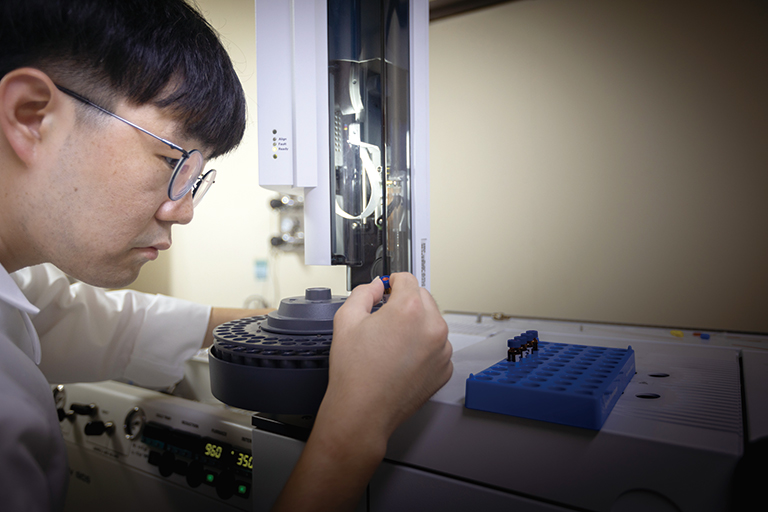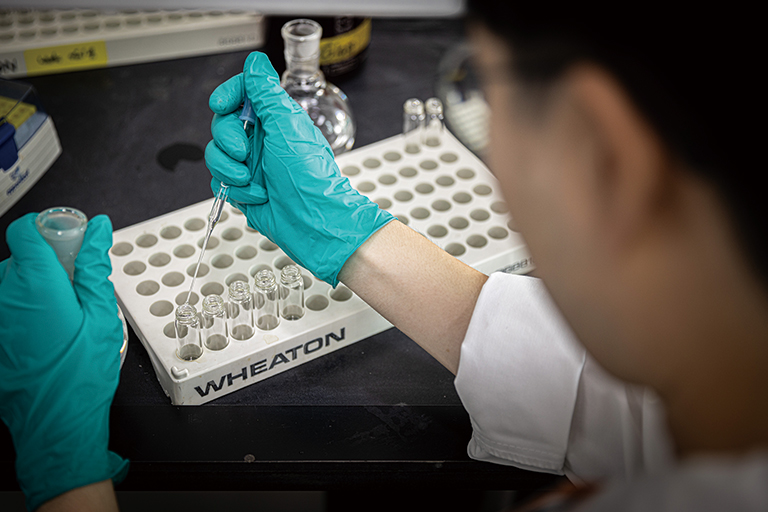Lab & Center
Global Researchers Gather
to Address Climate Changes
The Global Research Center for Marine Material Circulation Processes
- Written by. YeongIm Park
- Photos by. ChoWon Son
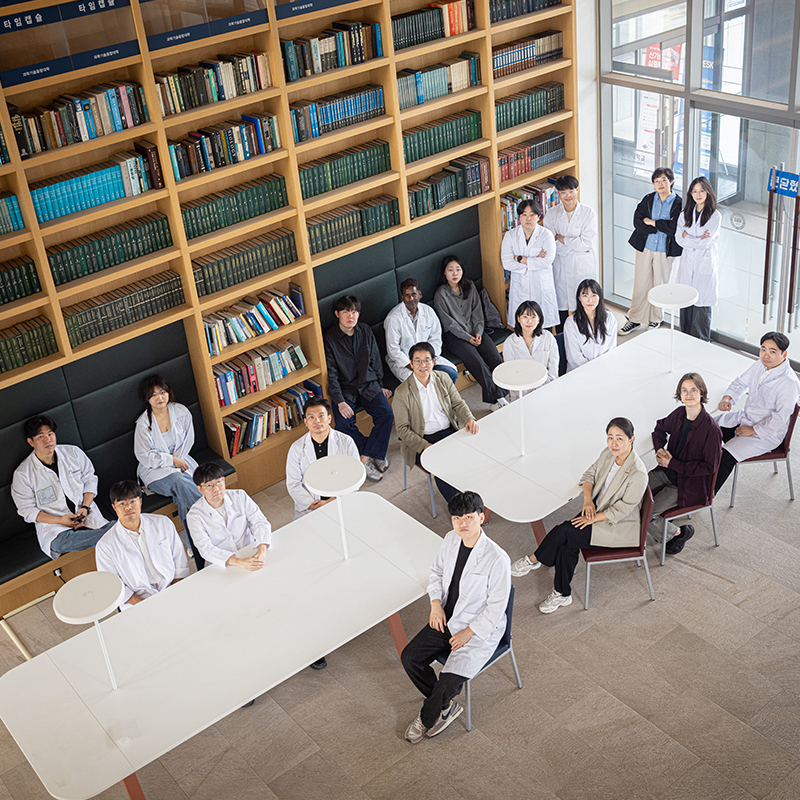
First SRC in Marine Science
Raising awareness of environmental degradation of the ocean involves not only plastics but also carbon, nitrogen, phosphorus, and organic matter that are the result of physical, chemical, and biological processes. These material cycles are essential for maintaining ecosystems and are directly connected to regulating the Earth’s climate. However, global climate change is altering the water cycle, intensifying floods, droughts, and creating high waves, changing estuarine and coastal environments, and thereby reshaping material circulation cycles. This significantly affects the structure of marine ecosystems and their carbon-storage capacity ultimately impacting all life on Earth including humanity.
Researchers are still unable to predict how future marine material circulation cycles will change or even to clarify the mechanisms by which climate change–driven alterations in the physical marine environment affect these cycles. To deal with these challenges scientifically, leading domestic and international researchers have come together to form what could be called an “Avengers Team” in the form of the Global Research Center for Marine Material Circulation Processes. “This center was established in 2025 when it was selected for the SRC Program by the Ministry of Science and ICT and the National Research Foundation. The SRC Program, launched in 1990, has supported Korea’s top basic science research groups but this is the first time a center in the field of marine science has been selected. This reflects recognition that the ocean is key to solving global-scale environmental and ecological problems such as climate change and biodiversity crises,” explained Professor KyungHoon Shin of the Department of Marine Science and Convergence Engineering.
The center, led by ERICA, was able to secure Korea’s first SRC project in marine science thanks to the outstanding research capacities of its team. Together with Professor Shin, a fellow member of the Korean Academy of Marine Science, the 10 core researchers have published more than 200 papers in top 10% JCR-ranked international journals since 2020. In addition, ERICA recently ranked 12th worldwide in the 2025 THE University Impact Rankings for SDG 14: Life Below Water, becoming the first Korean university to break into the global top 20 in this field and thereby demonstrating its unrivaled competitiveness.
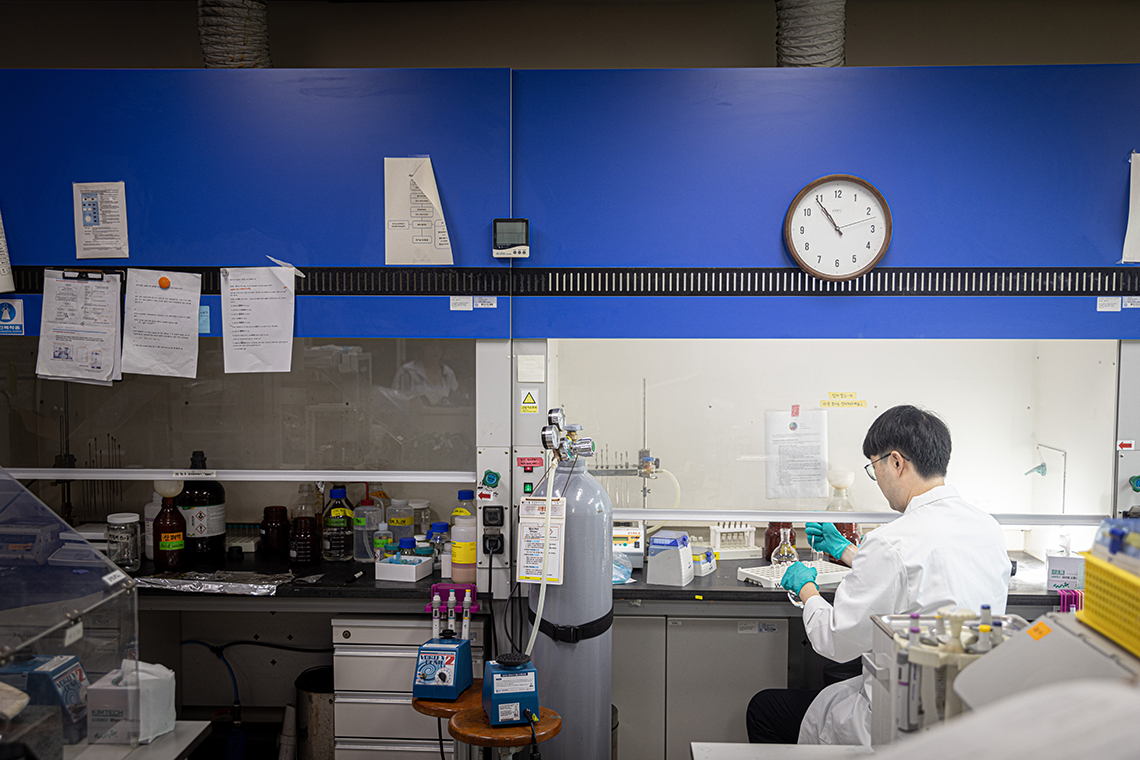 “The Global Research Center for Marine Material Circulation Process” was selected for the SRC Program hosted by the National Research Foundation and the Ministry of Science and ICT, carrying out the first-ever SRC project in marine science.
“The Global Research Center for Marine Material Circulation Process” was selected for the SRC Program hosted by the National Research Foundation and the Ministry of Science and ICT, carrying out the first-ever SRC project in marine science.
Why Global Marine Scientists Got Together
Professor EunJi Won of ERICA’s Center for Creative Convergence Education stated, “I am honored to participate as a co-researcher in the SRC Program which is leading Korea’s basic science field. By uncovering the complex impacts of climate change and human activity on ecosystems, I hope we can contribute to making sustainable policies based on science for future generations.”
The center is bringing together the Isotope Ecology and Environmental Science Laboratory, Climate Modeling Laboratory, the Coastal and Ocean Engineering Laboratory, and the Human & Ecology Analytical Laboratory within the Department of Marine Science and Convergence Engineering, as well as the Water Resources Engineering Lab in the Department of Civil and Environmental Engineering. Seven other Korean universities including Seoul National University, Kyungpook National University, Chungnam National University, Jeonbuk National University, Inha University, and POSTECH are also participating. Researcher MinHwa Koo (Ph.D. student, Department of Marine Science and Convergence Engineering) remarked, “I joined because this project to study ecosystems from estuaries to coastal seas from an integrated perspective and doing so gives me an opportunity to directly experience interdisciplinary research with scholars from diverse fields.”
Moreover, living up to its name as a global research center, the consortium also includes 22 institutions from seven countries, including: the Scripps Institution of Oceanography at UC San Diego with its advanced ocean observation and climate modeling; the University of Hawaii with its long-term ocean observation systems in tropical and Pacific regions; the French National Institute for Ocean Science (IFREMER) with its world-class competitiveness in pollutant tracking; and the University of Tasmania, Australia with its strengths in material cycle and ecosystem modeling. Needless to say, the study of marine material circulation is a complex area that is difficult to approach from a single discipline.
“Researching marine material cycles involves interwoven factors such as physical currents and energy, biogeochemical reactions, changes in biotic communities, and inputs of human-origin materials. That’s why collaboration is essential across the fields of oceanography, geochemistry, biogeochemistry, marine engineering, and marine biology. Thanks to our strong global cooperation network built through international symposia and joint research, our partners readily agreed to participate.”
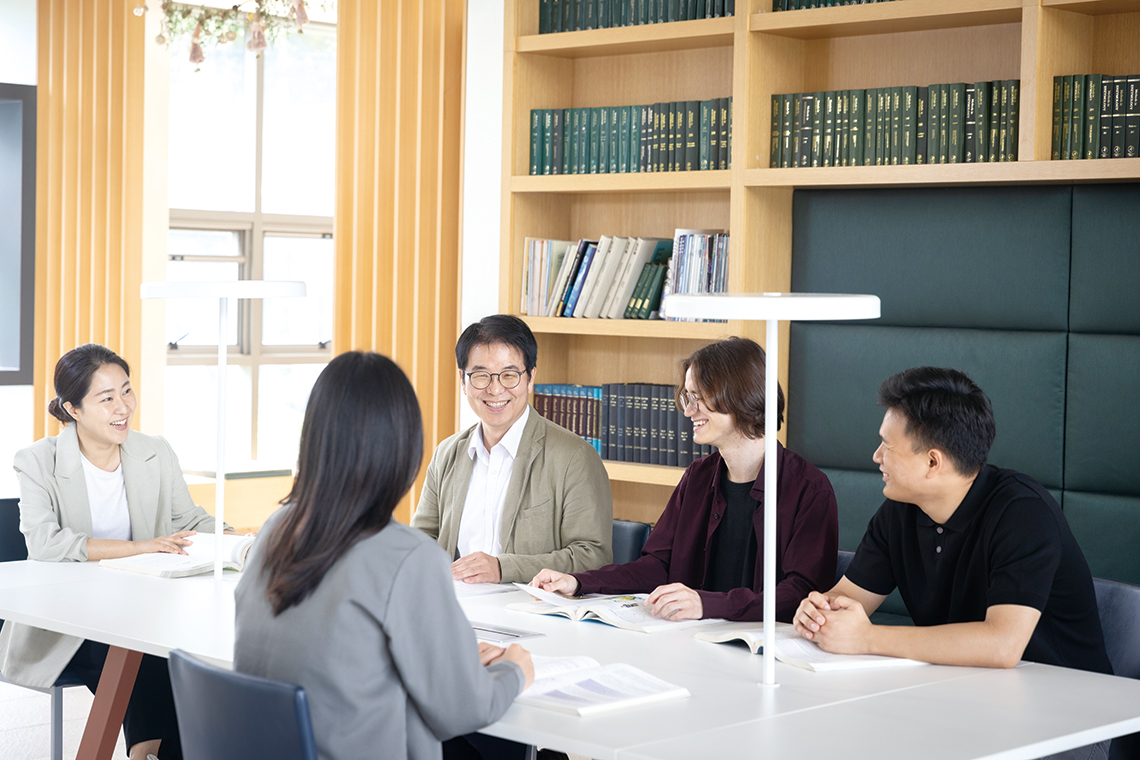 ERICA secured the first SRC project in the marine science field, thanks to the research capacity of its 10 core scientists, led by Professor KyungHoon Shin, a member of the Korean Academy of Marine Science.
ERICA secured the first SRC project in the marine science field, thanks to the research capacity of its 10 core scientists, led by Professor KyungHoon Shin, a member of the Korean Academy of Marine Science.
As a leading research center in marine science,
we will contribute to
creating a scientific foundation
in devising international policies
for a sustainable marine environment.

Building a Predictive Model for Marine Material Circulation Changes
With so many institutions involved, the center has formed a large-scale group of about 90 researchers. Their goal is to clarify how marine material circulation cycles are being transformed due to climate change and ultimately build predictive models of future climate scenarios. The research is divided into three groups, each with two topics:
Group 1 (Chemical Materials Circulation Research Group) studies biophilic element/circulation and behavior of hazardous substances; Group 2 (Climate Physics & Biogeochemical Model Research Group) studies changes in the water cycle and current systems; and Group 3 (Convergence Research) studies Algal toxin behavior (chemistry-physics convergence) and prediction of material circulation changes (physics–ecology convergence), the ultimate object.
Through research, the center aims to build a global database on material circulation and to share the results via seminars with international researchers, through symposia, and by joint publications. Using its global network, the center will also send Korean researchers abroad to foster the next generation of scholars.
“The climate crisis poses a profound threat to marine ecosystems and requires cooperation among researchers worldwide. As a leading institution in marine science, we will contribute to creating the scientific foundation for sustainable ocean environments and international policies.”
